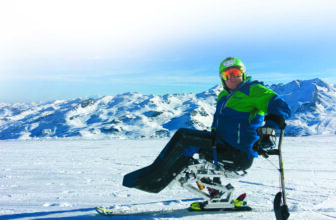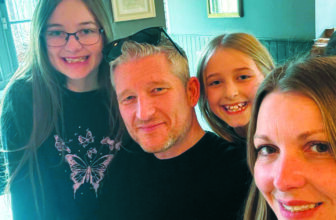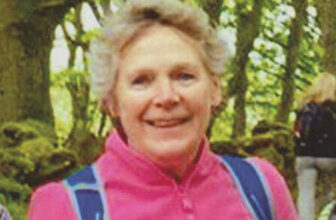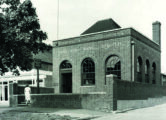
‘After enjoying the New Year festivities we often find ourselves calling the doctor’s surgery complaining of feeling unwell or maybe depressed at the prospect of facing a new year ahead?
Can I see someone now, today?’ . . . writes Mal Practice.
Imagine having to walk 30km every time you need a doctor – that’s the equivalent of Cranleigh to Crawley on foot – a long way to walk if you’re feeling unwell. This is the unfortunate
reality for the population of Southern Zambia.
For every 16,000 people, there is only one doctor available to help – meaning there is a critical shortage of healthcare professionals.
Some shocking statistics
In rural Southern Zambia there is:
- 12.5% HIV prevalence
- 57 years life expectancy
- 9% infant mortality rate – one of out every
- 12 babies don’t make their 1st birthday.
Adrian Gosling, who has spent the last ten years living in Cranleigh, runs a small medical charity– On Call Africa- which is dedicated to helping improve access to healthcare for the population of some of the smallest and most isolated villages in Zambia.
Adrian has always been involved in charity work, combining it with teaching jobs once or twice a week to make his salary stretch. However, in early 2015 he was asked to take on the role of Operations Director for On Call Africa. Working from home in Cranleigh, he now manages various aspects of the charity’s work, including fundraising, recruitment, and the education curriculum. He also stays in frequent touch with the teams out working in the village via WhatsApp and other communications technology.
(Pictured Above: Waiting in line for the Doctor)
So how did this come about?
Twenty years ago, Adrian was approached by a friend – Phil Wall – a Christian church leader who had recently visited southern Africa. Phil told him how he had encountered the enormous challenge of the thirteen million AIDS orphans of sub – Saharan Africa. Their response was to set up a charity – “We See Hope” – to work with local partners in countries like Zambia, Zimbabwe and beyond. Those local partners now provide support, education, and care for thousands of children who had been left without parents.
Alongside his job with On Call Africa, Adrian still continues to volunteer as a trustee with We See Hope.
He recalls a meeting that changed his perspective completely, when visiting one lady – Mrs Kaluna – in her tiny house in northern Zimbabwe. Mrs Kaluna was single-handedly bringing up her 8 grandchildren whom had each lost their parents. Adrian vividly recalls reading this handrawn image that she had pinned to the wall of her kitchen – a small figure climbing a mountain with words that read: “No goal is too high if we climb with care and confidence.” The fact that she was still able to look up, even at a time when her life was so hard, filled him with the hope and courage to believe in the scheme and the difference it could make to people’s lives.
(Pictured Above: An outdoor eye test)
On Call Africa has three aims to help improve access to healthcare in rural Zambia:
Training – Doctors from the UK travel out to train the local community health workers in order to ensure they are up to date with modern practices and can deliver quality healthcare
to their communities.
Teaching – These UK Doctors also run health education centres so that the people in the village know how to stay healthy and reduce their risk of catching infections and diseases.
Treating – The charity works hand in hand with local health services through mobile clinics to help develop sustainable systems of health provision.
Adrian emphasises that all three aspects of On Call Africa’s work play important roles. “Mobile clinics provide immediate treatment, but our health education programme and training of community health workers is vital in creating long-term improvements.”
A description of one of the clinics:
(Pictured Above: One of the Clinics)
“The clinic is under an open thatched adobe hut or in a school or maybe just a building with half a roof. Wherever it is, people arrive. Some have walked with their children through the night arriving at 3 or 4 am so they are first in the queue, others pitch up through the day after working in the field. Assisted by a team of volunteer local translators we work through the queue. Nobody complains of waiting too long. The doctors are usually able to diagnose and treat most conditions and prescribe medicines free of charge. People are grateful and willing to engage and the days are long but rewarding.”
On Call Africa in 2015
In 2015, On Call Africa expanded their trustee board, appointed a UK coordinator, and became a Scottish Charitable Incorporated Organisation.
Nine Trusts and Foundations made grants towards medical supplies, clinic running costs, and health worker training.
Donated supplies included children’s wheelchairs donated by Livingstone Rotary Club, recycled spectacles from Optical Express, and essential hygienic materials from the Birthing Kit Foundation.
They received news coverage on BBC Radio Scotland, the Sunday Mail, the Evening News, the Glasgow Herald, and several other local newspapers.
Their Founding Trustees were recognized with a Points of Light Award at 10 Downing Street presented by the then Prime Minister.
“On Call Africa are helping people in some of the most rural areas of Zambia to access vital health care and in some cases saving lives. By inspiring and training local people as well as their UK supporters they are enabling the people of Zambia to make a difference in their own communities.” – David Cameron
2015 Statistics:
- 91% of the patients were women and children
- 6843 individual patient diagnoses were
made - 2,034 young children under 5 received
treatment
Experiences:
“It is good to work with On Call Africa. The Community Health Workers that have been trained reduce the workload on me and decongest the Rural Health Centres. Some of the patients were actually dying right up there in their homes. We are now able to reach each and every individual.” – Jennifer Chispandue, a nurse based at Simango Rural Health Centre
“The exceptional benefit of working with On Call Africa is that doctors can help create something sustainable through education. The community health care workers all have a real eagerness and enthusiasm to learn.” – Dr Catriona Parker, an On Call Africa volunteer recruited by Adrian
What You Can Do
- Send a donation through their website
- Set up a weekly/fortnightly/monthly donation
- Introduce them to your work/club/school
- Raise money for them every time you shop
- online – more details on the website
- Start a fundraising event or initiative
Contact
Email: info@oncallafrica.org.uk
Phone: 07813 097250
Website: www.oncallafrica.org.uk
















